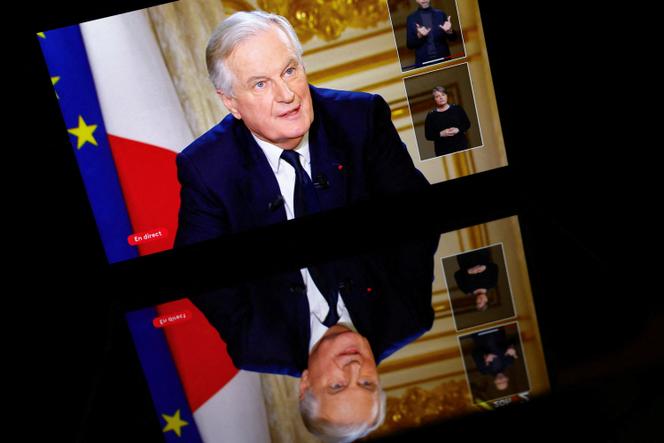


On the eve of the vote on a motion of no-confidence that could topple his government, Prime Minister Michel Barnier on Tuesday, December 3, emphasized the "rather serious moment" the country is facing. The left and the far right could vote for the motion of no-confidence, while key members of his supposed coalition are not rushing to his defense. Meanwhile, President Emmanuel Macron is already looking for a successor. Michel Barnier is on borrowed time but showed himself to be combative on French television, throwing all his last energies into the battle, in the probably futile hope of sparking a revival.
Not to save his job, because "I don't give a damn about the gilding around us, the official cars, the golds of the Republic," he asserted from his office in the Hôtel de Matignon. But because he believes it is "possible to avoid censorship." The prime minister appealed to the "responsibility reflex" of lawmakers, particularly those from the far-right Rassemblement National (RN), who will be "accountable" to their constituents if they back the motion of no-confidence drafted by the "extreme left."
In the few hours before the examination of the motions of no confidence (the RN also tabled one), could Barnier make a final gesture on retirement pensions, as Marine Le Pen demanded on Monday? He dismissed this, stating: "We're not in the bargaining business," and reproached Le Pen for having attempted "to get into a kind of one-upmanship."
As for the Socialists, "they told me: 'In any case, we're voting the censure' before I opened my mouth," assured Barnier. On the budget, "they presented me with a letter that was practically the program of the NFP [Nouveau Front Populaire, left-wing coalition]. So there's not much room for discussion."
If the budget is not adopted, warned the prime minister, "18 million" French people "will see their income tax increase." Barnier had already warned of a financial "storm" should the government fall. However, two hours before his televised interview, Macron, who has been virtually silent on domestic political issues for several months, intervened in the conversation to contradict Barnier. From Riyadh, the president downplayed the consequences of a government collapse, saying "we must not scare people with these things," as "we have a strong economy." "France is a rich, solid country, which has made many reforms and is keeping to them, which has stable institutions, a stable Constitution," he argued.
You have 60.37% of this article left to read. The rest is for subscribers only.
